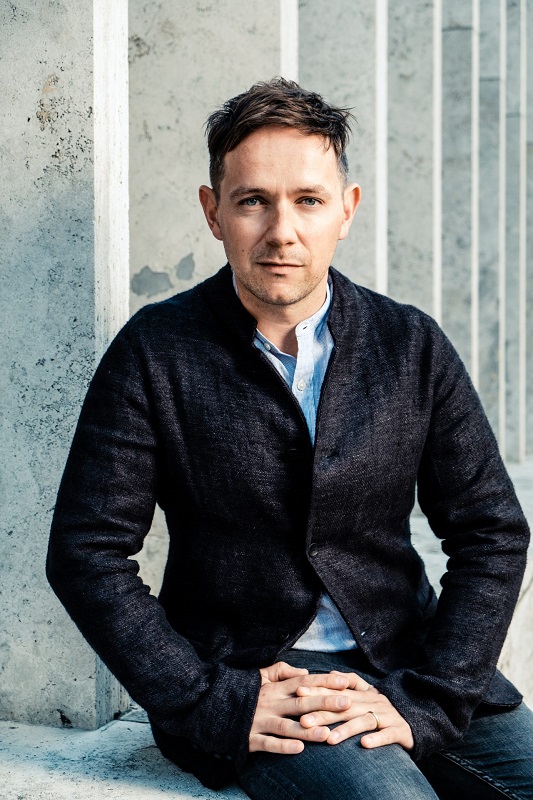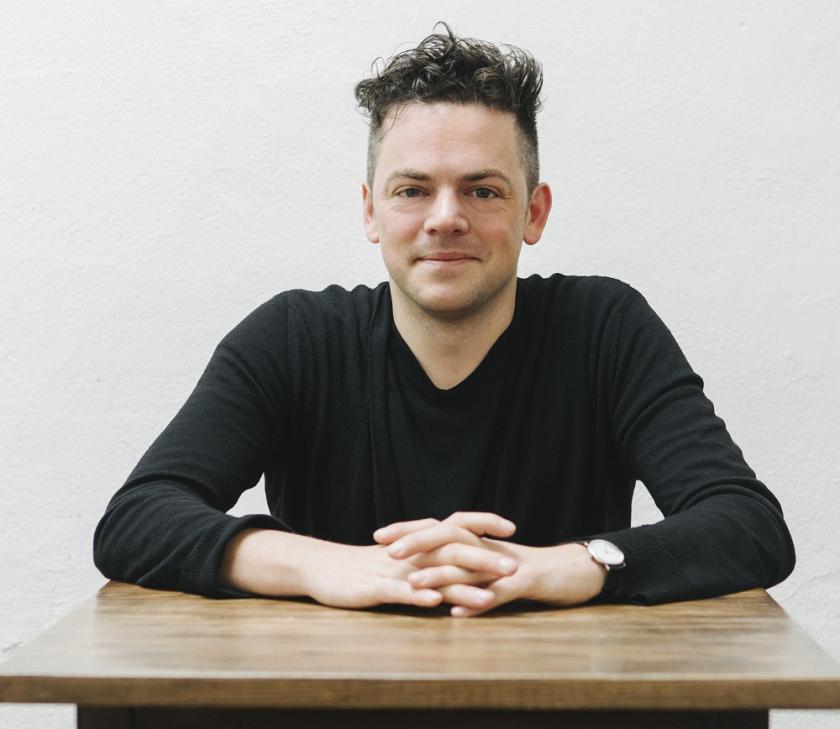Not really a song recital, nor a chamber music programme, this musical grab bag definitely was definitely popular. The programme of predominantly recent music was sold out weeks ahead. The notably younger-than-usual audience received it enthusiastically, and rightly so.
Although part of King’s Place's latest ‘unwrapped’ series, Time Unwrapped, the thematic linking of the pieces was fairly loose. But they made an effective sequence thanks to a unity of scoring, with harp and celesta popping up several times in support of the extraordinary voice of countertenor Iestyn Davies (pictured below).
The concert was curated – or ‘programmed’ in old money – by the American composer Nico Muhly, one-time wunderkind, now, as composer of opera for the Met, firmly part of the music establishment. He still dresses like a teenager though, for his appearance conducting (rather gauchely) his Old Bones, about the rediscovery of the body of Richard III in 2012.
 Of the three Muhly pieces, perhaps the most effective was Motion, for string quartet with piano and clarinet. It takes its starting point from a piece of Orlando Gibbons, which occasionally surfaces through the restless post-minimalist activity of the music. The quartet of strings was made up of the principal players of Aurora Orchestra, who although not a regular quartet, played with great commitment throughout, successfully negotiating the stylistic leaps of moving from Muhly to Debussy and back again.
Of the three Muhly pieces, perhaps the most effective was Motion, for string quartet with piano and clarinet. It takes its starting point from a piece of Orlando Gibbons, which occasionally surfaces through the restless post-minimalist activity of the music. The quartet of strings was made up of the principal players of Aurora Orchestra, who although not a regular quartet, played with great commitment throughout, successfully negotiating the stylistic leaps of moving from Muhly to Debussy and back again.
Muhly’s Clear Music, also springs from early music, this time a fragment of John Taverner (1490-1545), explored by the unusual grouping of cello (Sébastien van Kuijk), harp (Sally Pryce) and celesta (John Reid). With the rare treatment of the celesta as something more than an orchestral effect, Muhly found some magical timbres, with van Kuijk’s cello playing moving from the impassioned opening bars to a floating sound nearer to the soundworld of the later John Tavener.
There were two works by Thomas Adès. The Four Quarters is a string quartet from 2010, charts the flow of time both in the sense of times of the day, and in musical divisions of time. The playing was electric, making light of the tremendous rhythmic complexities, with Hélène Clément’s viola throwing out a range of colour and energy.
Even better was Adès’s early The Lover in Winter, written in 1989 when the composer was only 18. It is a short song-cycle in Latin describing a wintry love affair. Iestyn Davies was hypnotic, his voice with a razor’s edge that is perfect for this crystalline music. The spare scoring (for piano) gives the voice centre-stage, and Davies captured the bleak coldness of the music, its wandering lines caught in the resonance of the piano strings.
Davies was also magnificent in the final number, Muhly’s new arrangement of a Dowland song for all the evening’s players, weaving a web of smudged harmony around the stark countertenor melody. Davies is perhaps best known for Baroque operatic roles, but, having negotiated Muhly and Adès, and diverted briefly (and brilliantly) into Brahms, he found his spiritual home in Time Stands Still: the meeting of old and new was entirely enthralling.














Add comment